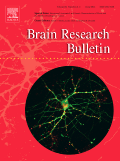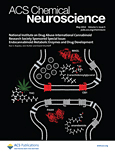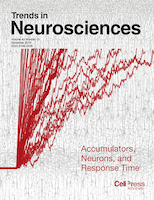
BRAIN RESEARCH BULLETIN
Scope & Guideline
Exploring the depths of brain function and disorders.
Introduction
Aims and Scopes
- Neuroinflammation and Neuroimmune Interactions:
Research frequently addresses the role of neuroinflammation in various neurological conditions, exploring how immune responses influence brain health and disease states. - Cognitive Function and Behavioral Neuroscience:
A significant focus is placed on understanding the mechanisms underlying cognitive functions, including memory, learning, and the impact of stress and trauma on these processes. - Neuroprotection and Neuroregeneration:
The journal publishes studies on neuroprotective strategies and the potential for regeneration in the nervous system, investigating various pharmacological and non-pharmacological interventions. - Molecular Mechanisms of Brain Disorders:
Research often delves into the molecular pathways involved in brain disorders, including the role of non-coding RNAs, signaling pathways, and genetic factors. - Animal Models and Experimental Approaches:
Utilization of diverse animal models to simulate human neurological conditions is a consistent methodological approach, facilitating the translation of findings to clinical applications.
Trending and Emerging
- Gut-Brain Axis Research:
An increasing number of studies are exploring the relationship between gut microbiota and brain function, highlighting the significance of the gut-brain axis in mental health and neurological disorders. - Neuronal Plasticity and Neurogenesis:
Research focusing on the mechanisms of neuronal plasticity and the potential for neurogenesis in response to various stimuli is gaining traction, reflecting a deeper understanding of recovery processes in brain injuries. - Role of Non-Coding RNAs:
There is a rising trend in the investigation of non-coding RNAs, particularly in their roles in regulating gene expression and their implications in neurodegenerative diseases. - Psychobiotics and Mental Health:
Emerging studies are examining the therapeutic potential of psychobiotics, emphasizing their role in modulating mental health through gut microbiome interventions. - Technological Advancements in Neuroscience:
Innovative techniques such as advanced imaging methods, optogenetics, and CRISPR technology are becoming increasingly prevalent in studies, enhancing the exploration of brain functions and disorders.
Declining or Waning
- Traditional Pharmacological Approaches:
There seems to be a waning interest in conventional pharmacological treatments for neurological conditions, as research increasingly focuses on novel therapeutic strategies and integrative approaches. - Basic Neuroanatomy Studies:
Research purely centered on neuroanatomy without a functional or clinical context appears less frequently, signaling a shift towards studies that integrate anatomy with functionality and disease mechanisms. - Single-Factor Studies:
There is a noticeable decline in studies that investigate single factors in isolation, with a growing trend towards multi-factorial and systems-level approaches in neuroscience research.
Similar Journals

Aging Brain
Pioneering Insights into the Aging ProcessAging Brain is a premier Open Access journal published by Elsevier, dedicated to advancing the understanding of the neurobiological changes associated with aging. Since its commencement in 2021, this journal has been pivotal in disseminating high-quality research that explores the intricate relationships between aging and cognitive functions, neurological disorders, and overall brain health. With a notable commitment to open accessibility, Aging Brain ensures that vital findings are available to a global audience, fostering collaboration and innovation in the field. Researchers, healthcare professionals, and students alike will find a rich repository of cutting-edge studies, reviews, and insights aimed at addressing the complexities of the aging brain. The journal stands as an influential platform for those passionate about enhancing the quality of life for the aging population, making it a valuable resource in gerontology and neuroscience.

ACS Chemical Neuroscience
Fostering Collaboration at the Intersection of Chemistry and Neuroscience.ACS Chemical Neuroscience, published by the American Chemical Society, is a premier journal dedicated to exploring the complex interactions between chemistry and neuroscience. With its ISSN 1948-7193 and a distinguished impact factor that positions it within the top quartiles across multiple categories, including Q1 in Biochemistry, Q2 in Cell Biology, and Q1 in Physiology, this journal serves as an essential platform for researchers engaged in cutting-edge studies from 2010 to 2024. Positioned within the top 15% of its field in Cognitive Neuroscience according to Scopus rankings, ACS Chemical Neuroscience strives to foster interdisciplinary collaboration, publishing significant advancements that integrate chemical concepts with neurological processes. Despite its traditional publication model, the journal is committed to maintaining rigorous peer-review standards and providing valuable insights that drive innovations in therapeutics and understanding the biochemical underpinnings of brain function. Researchers, professionals, and students alike will find in this journal a vital resource for the latest findings and methodologies in the dynamic intersection of chemistry and neuroscience.

NEUROREPORT
Advancing the frontiers of neuroscience.NEUROREPORT is a distinguished journal in the field of neuroscience, published by Lippincott Williams & Wilkins. With an ISSN of 0959-4965 and an E-ISSN of 1473-558X, the journal has established itself as a vital platform for disseminating innovative research and developments in the dynamic area of neuroscience since its inception in 1990. Currently, it is positioned in the Q3 category of the 2023 Journal Rankings, reflecting its respectable standing within the community of neuroscience professionals, ranked #74 out of 113 in general neuroscience on Scopus, placing it in the 34th percentile. While it operates on a traditional subscription model, NEUROREPORT is committed to fostering knowledge sharing in the realm of neurobiology, neuropharmacology, and cognitive studies among researchers, professionals, and students alike. With its broad scope and commitment to scientific excellence, the journal continues to be a cornerstone for those seeking to stay ahead in the evolving landscape of neurological research.

BRAIN AND COGNITION
Advancing Insights in Cognitive NeuroscienceBRAIN AND COGNITION, published by Academic Press Inc Elsevier Science, stands as a vital resource for researchers and practitioners in the realms of cognitive neuroscience and psychology. Established in 1982, the journal has continuously evolved, showcasing cutting-edge research that bridges the understanding of brain functions and cognitive processes up to 2024. With an impressive impact factor reflecting its commitment to high-quality scholarship, the journal currently holds a prestigious Q1 ranking in Arts and Humanities (miscellaneous) and notable Q2 rankings in various psychology fields, including Cognitive Neuroscience, Developmental and Educational Psychology, Experimental and Cognitive Psychology, and Neuropsychology. This multidisciplinary journal cultivates a rich academic dialogue, offering valuable insights to professionals, researchers, and students alike. Although it does not offer open access, its robust indexing in Scopus and consistent contribution to important discussions in cognitive research define its critical role in advancing knowledge and innovation in the cognitive sciences.

Zeitschrift fur Neuropsychologie
Bridging Disciplines in Neuropsychology and PsychiatryZeitschrift für Neuropsychologie, published by HOGREFE AG in Switzerland, stands as a vital resource for scholars and practitioners in the fields of neuropsychology, cognitive neuroscience, and psychiatry. With an ISSN of 1016-264X and E-ISSN 1664-2902, this journal aims to disseminate high-quality research that enhances understanding of cognitive processes and their implications for mental health. While currently classified in the fourth quartile across relevant categories, including Cognitive Neuroscience and Neuropsychology, it offers valuable insights that contribute to the emerging discourse in these areas. By publishing both empirical studies and theoretical papers, it encourages interdisciplinary dialogues among researchers and clinicians. Although the journal is not Open Access, its role in advancing neuropsychological research is significant, fostering academic linkages from its base in Bern, Switzerland. By continually focusing on the latest advancements and fostering innovative approaches within the field, Zeitschrift für Neuropsychologie remains a crucial platform for those committed to exploring the complexities of the human mind.

Cognitive Neurodynamics
Fostering Dialogue in Cognitive Research.Cognitive Neurodynamics is a leading journal in the field of cognitive neuroscience, published by Springer in the Netherlands. With an ISSN of 1871-4080 and an E-ISSN of 1871-4099, this journal has established itself as a prominent platform for innovative research from its inception in 2007, continuing to enrich the academic landscape through 2024. Recognized for its significant contributions, Cognitive Neurodynamics holds a Q2 quartile ranking in cognitive neuroscience and impressively ranks #27 out of 115 in the Scopus database, placing it in the 76th percentile among its peers. While the journal is not open access, it offers a wealth of studies focusing on the intricate dynamics of cognitive processes and neurobiological mechanisms, making it essential reading for researchers, professionals, and students alike. Its objective is to bridge the gap between theoretical insights and practical applications, fostering a deeper understanding of cognition through multidisciplinary approaches. Explore the latest advancements in cognitive dynamics and contribute to the evolving dialogue within this fascinating field.

Journal of Neuroinflammation
Unraveling the complexities of neuroinflammation for a healthier future.Journal of Neuroinflammation is a premier open-access journal published by BMC that has been at the forefront of research in the field since its inception in 2004. With a strong focus on the intricate interplay between the nervous system and immune responses, this journal aims to create a forum for the dissemination of high-quality research that informs our understanding of neuroinflammation and its implications in neurological disorders. Positioned in the top quartile across multiple categories including Cellular and Molecular Neuroscience, Immunology, and Neurology, the journal ranks impressively within the Scopus database, ensuring visibility to the global research community. The Journal of Neuroinflammation provides a vital platform for researchers and professionals to share groundbreaking findings, methodologies, and reviews that advance science and foster collaboration. With its commitment to open access, the journal ensures that its content is accessible to a broad audience, enhancing the dissemination of knowledge in this critical field of study.

TRENDS IN NEUROSCIENCES
Illuminating Pathways in Brain ResearchTRENDS IN NEUROSCIENCES, published by CELL PRESS, is a leading journal in the field of neuroscience, offering cutting-edge insights and important developments in the rapidly evolving landscape of brain research. With an impressive Impact Factor and ranking in the top quartile (Q1) of the category for Neuroscience (miscellaneous), it is positioned as a vital resource for researchers and professionals seeking to stay abreast of the latest discoveries and trends from 1978 to the present. Specifically ranked #3 out of 113 in General Neuroscience by Scopus, this journal promotes the interdisciplinary exchange of ideas and knowledge, making it an essential platform for students and experienced scholars alike. Although it is not an Open Access journal, its value lies in its rigorous peer-review process and commitment to maintaining the highest standards of academic integrity. By continuing to explore the complexities of neural processes and behavior, TRENDS IN NEUROSCIENCES plays a crucial role in shaping the future of neuroscience research and education.

NEUROPSYCHOLOGY REVIEW
Fostering Interdisciplinary Dialogues in NeuropsychologyNEUROPSYCHOLOGY REVIEW is a prestigious journal published by Springer, dedicated to the exploration of cognitive processes and behavior through neurological and psychological perspectives. With its ISSN 1040-7308 and E-ISSN 1573-6660, this journal holds a distinguished position in Q1 of the Neuropsychology and Physiological Psychology category, ranking at #3 out of 76 with an impressive 96th percentile in Scopus. Since its inception in 1990, it has provided a critical platform for researchers, professionals, and students to disseminate and engage with comprehensive reviews and empirical research, promoting a deeper understanding of the interplay between neural mechanisms and psychological phenomena. Aimed at fostering interdisciplinary collaboration and advancement in the field, NEUROPSYCHOLOGY REVIEW invites contributions that push the boundaries of knowledge and stimulate ongoing debates in neuropsychology, making it an invaluable resource for anyone interested in the latest scientific advancements within this dynamic area.

CEREBRAL CORTEX
Elevating the discourse in neuroscience research.CEREBRAL CORTEX, published by Oxford University Press Inc, is a premier journal dedicated to advancing the field of neuroscience, specifically focusing on the cellular, molecular, and cognitive aspects of cortical structure and function. With an impressive impact factor that situates it in the top quartile (Q1) of its categories for 2023, this journal holds significant relevance for researchers and professionals interested in the latest discoveries and methodologies in both Cognitive Neuroscience (ranked #31 out of 115) and Cellular and Molecular Neuroscience (ranked #48 out of 97). Operating without an open access model, it ensures rigorous peer review and dissemination of high-quality research from across the globe. Since its inception in 1991, CEREBRAL CORTEX has established itself as a critical platform for educators and inventors, pushing the boundaries of knowledge in understanding brain function and its implications for behavior. Researchers and students alike will find this journal an invaluable resource for both foundational and cutting-edge studies in neuroscience.